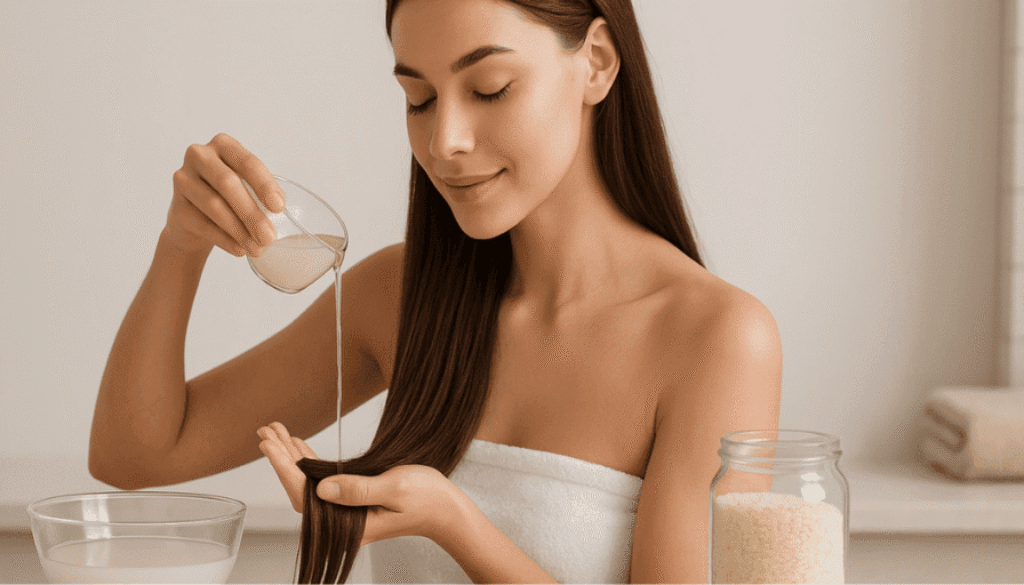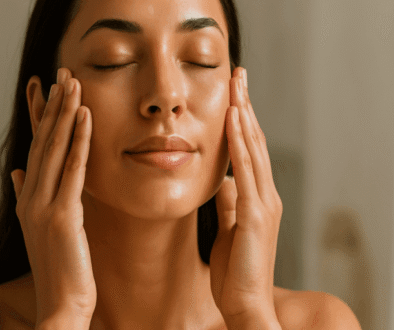How to Use Rice Water for Hair Growth: A Simple Step-by-Step Guide
Many women dream of long, healthy hair, but achieving it can feel slow—especially with damage and breakage. While shampoos and supplements may offer little progress, a simple kitchen ingredient might help: rice water for hair growth. This age-old remedy has gained viral attention on TikTok, but its roots go back centuries. From Japanese court ladies to the Red Yao women of China—famous for their six-foot-long hair—fermented rice water has long been used to strengthen and nourish hair. In this guide, you’ll discover what rice water is, how it works, and how to use it safely for the best results.
Various cultures have long cherished rice water for hair growth. Take the Yao women from Huangluo village, for instance; they credit their remarkable hair length and color to daily washes with fermented rice water, often infused with herbs. Nowadays, social media has brought these tales to the forefront, making rice water a hot topic for anyone on the hunt for natural hair growth remedies. In this article, we’ll cover everything you need to know—from the nutrients found in rice water and how to prepare it, to what you can realistically expect and the precautions to take—so you can decide if it’s a worthy addition to your hair care routine.
Understanding Rice Water for Hair Growth
What is rice water? It’s that cloudy, starchy liquid you get after rinsing, soaking, or cooking rice. It appears milky because rice grains are made up of about 80–90% starch. When you wash or boil rice, all those good nutrients seep into the water. This liquid is rich in amino acids, vitamins, and minerals that come from the rice itself. As one source puts it, “Rice water is the starchy water that remains after rice has been washed or soaked.” You can either soak raw rice in water or give it a quick boil; either way, you’ll strain out the rice and keep that pale, cloudy goodness.
The rice water you end up with is loaded with the nutrition from the rice. It contains carbohydrates (starch) along with whatever vitamins and antioxidants are present in the rice. Most recipes kick off by rinsing or cooking rice and collecting that milky water. There are a few different methods to make it (which we’ll cover next), but no matter how you do it, you’ll end up with a liquid “elixir” that many swear by for hair and scalp benefits.
Regular vs. fermented rice water.
Traditionally, some women choose to ferment the rinsed rice water to enhance its effectiveness. Fermentation involves letting the rice-water mixture sit at room temperature for anywhere from 8 to 24 hours or more, allowing natural yeasts and bacteria to flourish. This process lowers the pH of the liquid (making it slightly acidic) and boosts certain nutrients. For instance, fermenting rice water has been shown to significantly increase inositol (Vitamin B8) levels and enhance B5 and peptide content. Inositol is known for its ability to strengthen hair fibers by penetrating the cortex and improving elasticity. Plus, fermented rice water produces “postbiotics” (the beneficial byproducts of good bacteria) that can help soothe the scalp. In short, fermentation is believed to make rice water a more effective treatment. If you boil rice in water and use it right away, that’s what we call “regular” rice water. If you soak the rice overnight before using it, that’s “fermented.”
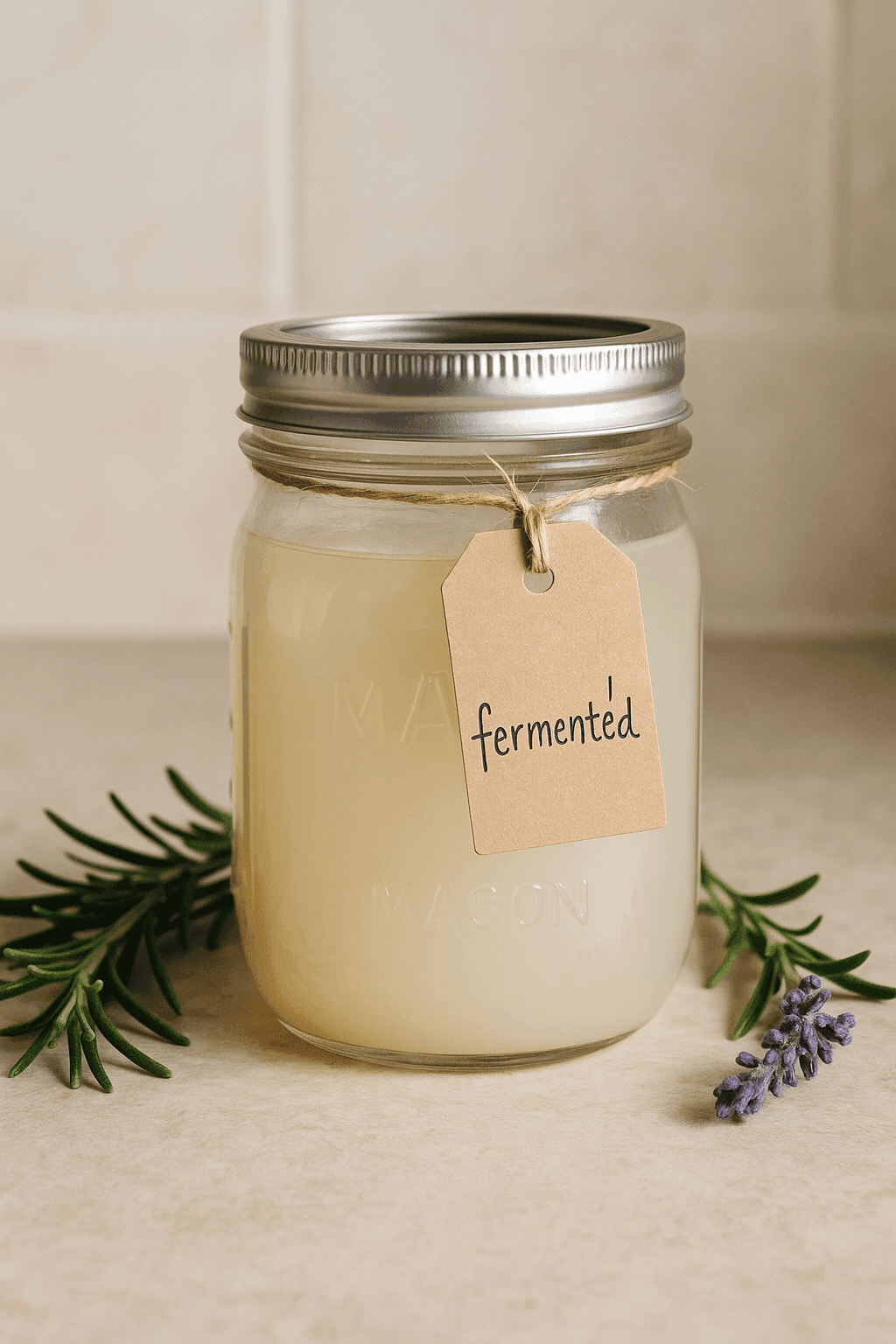
Why Rice Water for Hair Growth
Rice water for hair growth is backed by both tradition and science. It’s rich in amino acids, B vitamins, vitamin E, antioxidants, and inositol—all of which help strengthen hair, improve elasticity, and reduce breakage.
Its high starch content acts like a natural conditioner. As Dr. Alok Vij from the Cleveland Clinic explains, “The starch acts like a conditioner,” coating each strand to smooth the cuticle, reduce friction, and prevent damage.
A review in the Journal of Drugs in Dermatology also found that compounds from rice bran extract may promote hair growth by encouraging follicles to stay in the active growth phase (anagen). While this research focuses on rice bran—not plain rice water—it suggests that rice-based ingredients may benefit the scalp and follicles.
However, it’s important to set realistic expectations. Hair growth is mostly determined by genetics. Rice water won’t change your growth rate overnight, but it can strengthen your hair, reduce breakage, and help maintain length over time. Many users also report smoother, shinier, and less frizzy hair with consistent use.
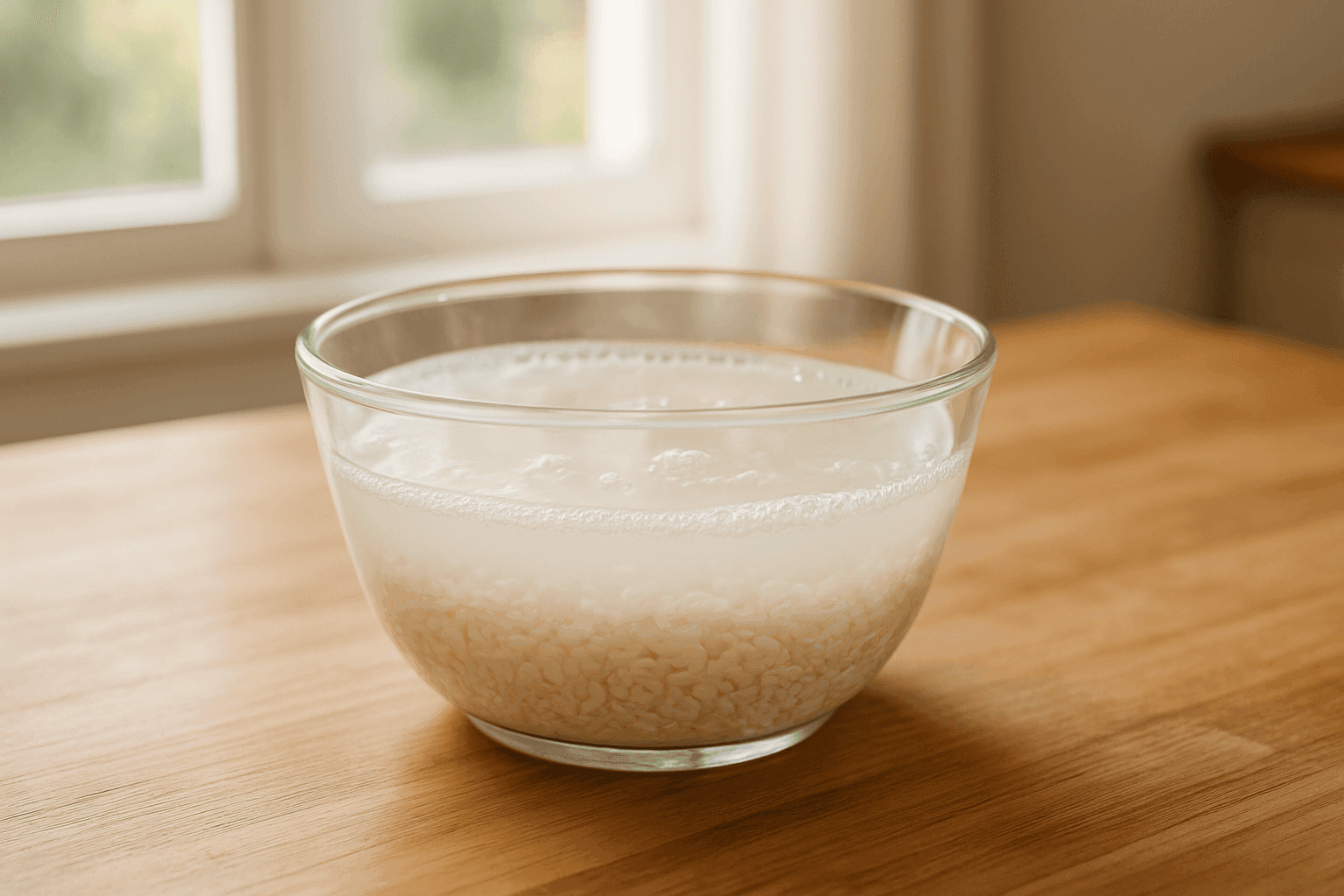
Also read: Best Fruit to Promote Hair Growth
Common Myths and Facts
Myth 1: Rice water makes hair grow instantly.
Fact: While rice water can boost your hair’s strength and shine, it won’t magically speed up growth. Your genetics have a much bigger say in how fast your hair grows.
Myth 2: It works the same for everyone.
Fact: The results can differ based on your hair type and how you use it. If you have fine or damaged hair, using too much might leave it feeling stiff.
Myth 3: It’s completely safe because it’s natural.
Fact: Even though it’s free from chemicals, overdoing it can lead to dryness, buildup, or too much protein. Aim to use it just 1–2 times a week.
Myth 4: It cures dandruff.
Fact: Rice water might help soothe a dry scalp, but it won’t fix fungal dandruff or serious scalp issues.
Myth 5: More is better.
Fact: Using too much can actually harm your hair. Stick to moderate amounts and always follow up with a conditioner to keep moisture levels balanced.
Preparing Rice Water for Hair Growth
Follow these steps to make rice water at home:
Choose your rice.
Go for plain, unscented rice without any additives. You can use white rice, brown rice, jasmine, basmati—pretty much any rice you have in your kitchen. (Organic is a great choice to steer clear of pesticides.) Just skip the instant or pre-seasoned varieties, as they’ve lost a lot of their proteins.
Rinse the rice.
Measure out about ½–1 cup of rice and rinse it well under clean water, rubbing the grains to wash off any dust and surface starch. Drain the rinse water.
Make rice water (soaking method).
- After rinsing, put the rice in a clean bowl or jar and add 2–3 cups of water.
- Let it soak for about 15–30 minutes, giving it a stir now and then. You’ll notice the water turning cloudy.
- Optional (fermentation): If you want to ferment the rice water, cover the bowl or jar and let it sit at room temperature for 8–16 hours or overnight. The longer it sits, the tangier it becomes (fermentation boosts antioxidant levels)
Make rice water (boiling method).
(An alternative quick method)
- Rinse ½ cup of rice and set it aside. Boil about 2 cups of water.
- Toss the rinsed rice into the boiling water and cook for a few minutes until the water looks milky.
- Take it off the heat and let it cool. Then strain out the rice, keeping the starchy water.
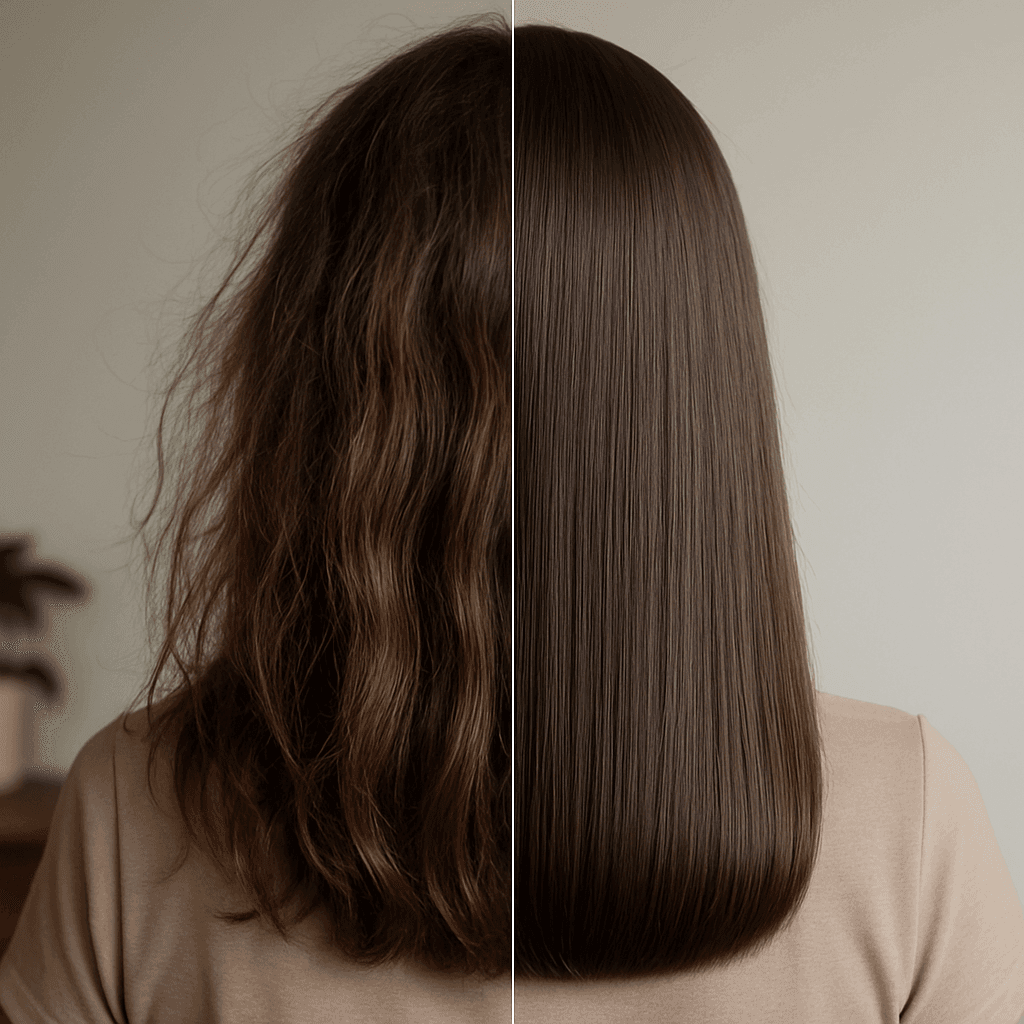
Strain and store.
Use a clean mesh strainer or cloth to separate the rice water from the grains. Pour the strained rice water into a glass jar or bottle. Seal it up and pop it in the fridge. If stored properly, rice water will last about 4–5 days. Toss it if it starts to smell really sour or shows signs of mold, which means it’s over-fermented.
By following these steps, you’ll have a homemade rice water rinse ready to go. (And don’t forget, you can use the soaked or cooked rice for your meals!) Just remember to always prepare rice water in a clean container to keep it contamination-free.
How to Use Rice Water for Hair
🧼 Start with clean hair:
Shampoo your hair and rinse thoroughly. This removes dirt and oil, allowing rice water to work better.
💧Apply rice water:
Pour or spray the rice water onto damp hair. Massage it gently into your scalp and work it through to the ends.
⏱️Let it sit:
Leave it on for 10–20 minutes. Use a shower cap if needed. Avoid leaving it on for too long to prevent dryness.
🚿Rinse well:
Thoroughly rinse your hair with plain water until there’s no slippery or starchy residue.
🧴Condition after:
Follow up with your usual conditioner or hair oil (like coconut or argan) to lock in moisture and prevent protein overload.
📅 Frequency:
Use rice water once or twice a week. Overuse can lead to buildup or dryness, especially for fine or damaged hair.
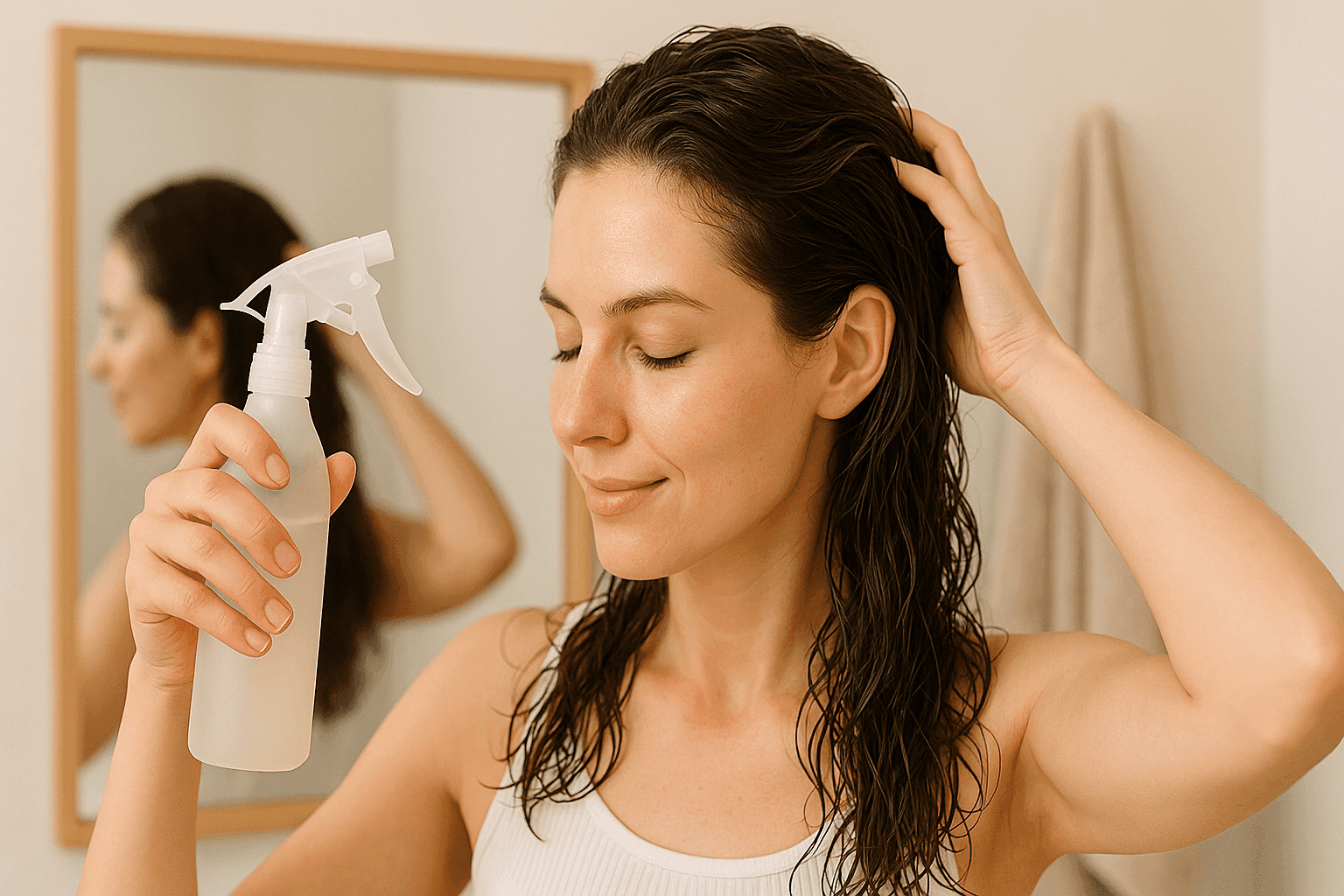
Potential Side Effects and Precautions
🔍 Patch test first:
Before diving in, try a small amount on your inner arm or behind your ear 24 hours ahead of time to see if you have any allergic reactions.
🚫 Avoid overuse:
Too much rice water can lead to dryness, stiffness, or product buildup. Limit your use to once or twice a week.
😣 Watch for irritation:
If you experience itchiness, burning, or see redness on your scalp, rinse it out right away and stop using it.
🧊 Store properly:
Keep your rice water in the fridge and use it within 4–5 days. If it starts to smell sour or shows any signs of mold, toss it out.
💧 Moisturize dry or damaged hair:
If your hair feels brittle after using rice water, balance it out with deep conditioners or natural oils to avoid protein overload.
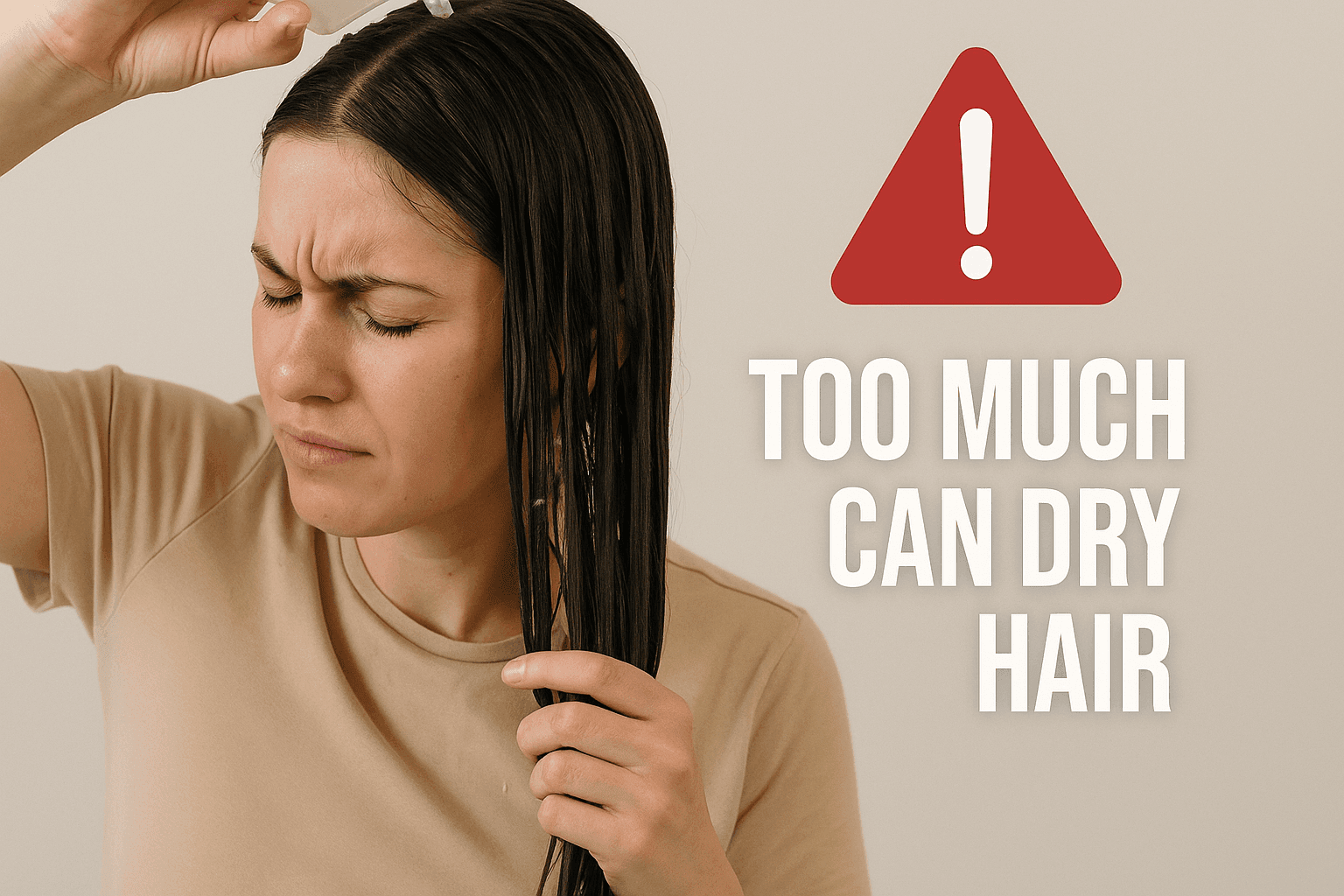
FAQs
How soon will I see results?
Rice water isn’t exactly a magic potion for hair growth. On average, hair grows about half an inch each month, so don’t expect to wake up with long, flowing locks overnight. Experts often say the real question isn’t “when” you’ll see faster growth, but “if” you will. Some folks notice shinier, softer hair or less breakage after just a few uses, but any significant change in length usually takes several months. So, hang in there! Consistent weekly use for at least 6–8 weeks is generally needed to really see its effects. And remember, your hair growth rate is mostly determined by genetics, so any subtle changes will take time.
Regular vs fermented rice water – what’s better?
Fermented rice water tends to pack a bigger punch. Allowing the rice water to ferment for a day or two boosts certain nutrients like inositol and peptides, plus it becomes a bit acidic, which is great for your hair. Many users say fermented rice water feels more effective. Regular (freshly strained) rice water still has starch, vitamins, and amino acids, just in slightly lower amounts. In practice, both methods offer similar benefits; go for regular rice water if you’re in a hurry, or ferment some when you have a bit more time. Just be careful not to over-ferment it—nobody wants a sour smell!
Can I use rice water on color-treated hair?
Absolutely! Rice water is safe for dyed or chemically treated hair. It doesn’t contain bleach or peroxide, so it won’t strip your color. In fact, Real Simple mentions that “most hair types benefit from [rice water], including color-treated hair.” As always, if you’re worried, do a quick strand test first. And don’t forget to follow up with conditioner, since color-treated hair often craves a little extra moisture.
Will rice water help dandruff?
Rice water can help cleanse and may soothe a dry scalp, but it’s not a miracle cure for dandruff. If your dandruff is due to dryness or product buildup, a good rinse might help a bit. However, if it’s caused by yeast or a skin condition, you’ll need a medicated shampoo. Just a heads up, rice water isn’t an antifungal shampoo.
Brown rice vs white rice – does it matter?
Either option works just fine. Brown rice has more of the grain’s outer bran, which means it packs in extra vitamins, minerals, and a bit of oil compared to white rice. That’s why some folks lean towards brown rice. You might notice that the water from brown rice looks a bit darker and has a nuttier aroma, but don’t worry, it won’t harm your hair. Real Simple backs this up, saying that “most types of rice (white, brown, jasmine, wild, organic) work.” So, feel free to use whatever you have on hand. The real benefits come from the starch and essential nutrients, which are found in all natural rice.
Anything else I should know?
Just remember that rice water is mainly a treatment for hair texture, not a miracle solution. Think of it as a nice addition to your routine: a DIY conditioner or tonic loaded with natural goodness. Good hair habits—like a balanced diet, gentle care, and avoiding damage—are still the key to healthy hair growth. If after a couple of months you don’t see any changes, it might just be that it’s not for you—hair care can be quite personal. But if you find it’s making your hair feel smoother or stronger, it can be a fun and budget-friendly addition to your regimen.
Conclusion
Rice water is a simple, affordable, and natural remedy that can help improve hair strength, shine, and manageability. Rich in nutrients and free from harmful chemicals, it’s generally safe for most hair types when used in moderation.
While it won’t give you instant results, consistent use once or twice a week may reduce breakage and enhance texture over time. Just listen to your hair—if it starts to feel dry or brittle, reduce usage or add a deep conditioner.
In the end, rice water for hair growth isn’t a miracle fix, but it can be a valuable part of a healthy hair routine. With patience and proper care, it might just help your hair look and feel its best.
